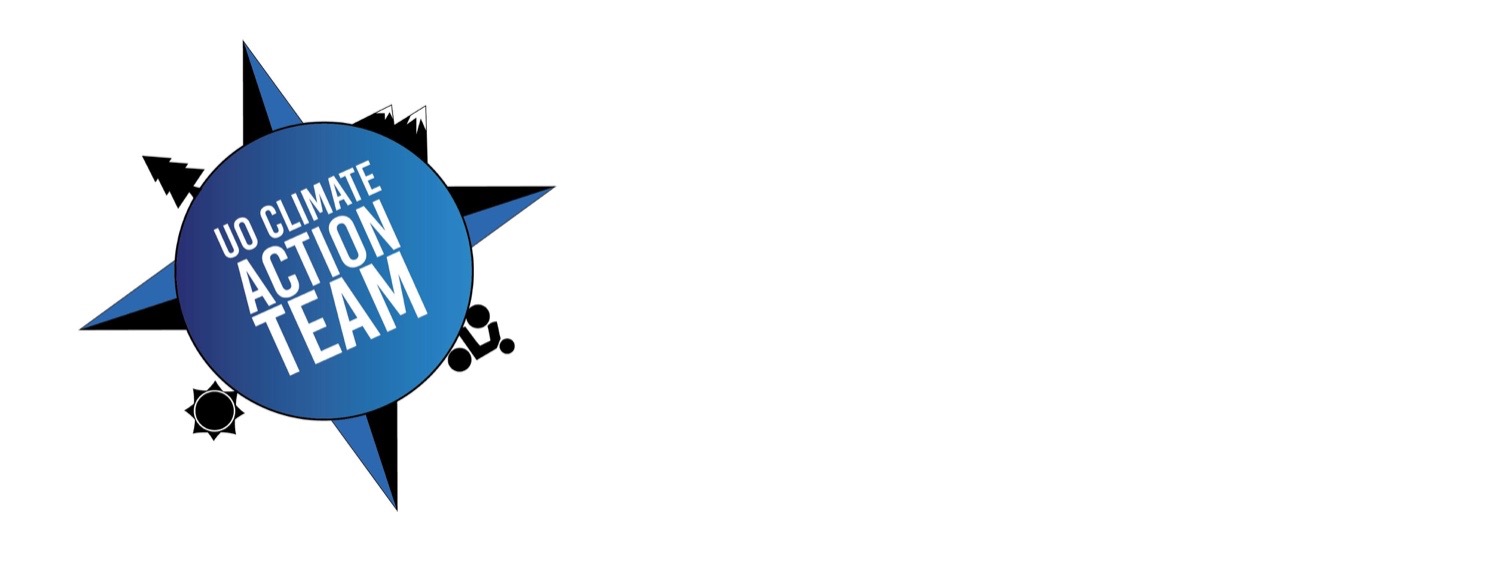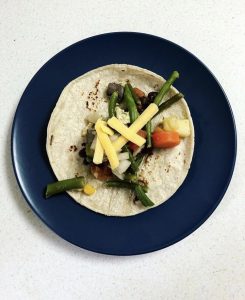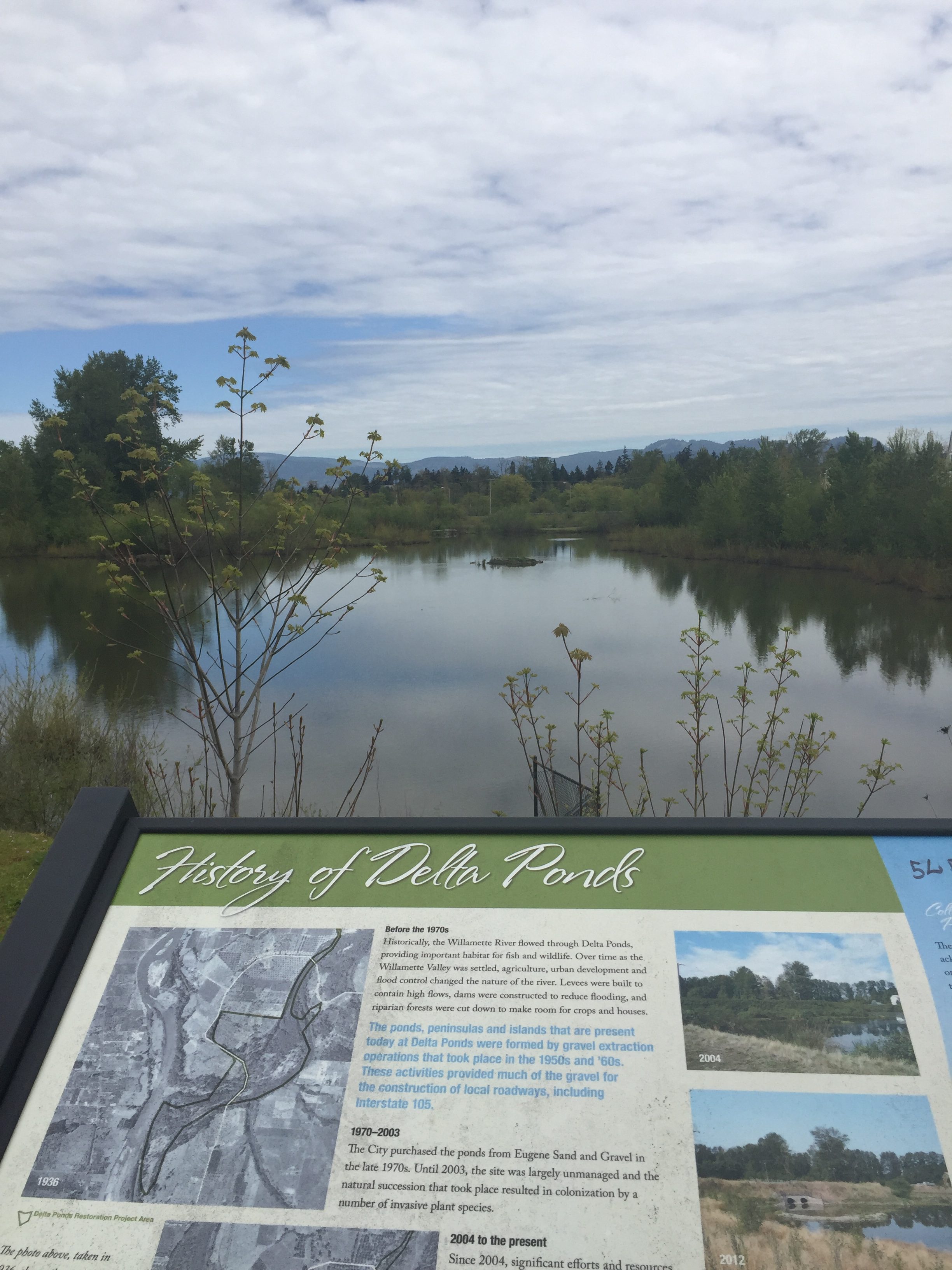University of Oregon Zero Waste facility
The Zero Waste Program is a student-started program at the University of Oregon with the intent to reduce the waste thrown away on campus. Last year, they had diverted 55.4% of waste from the landfill which included the dorm move out waste (Gillespie, 2018). They have done this by setting up zero waste stations in all of the new and renovated buildings on campus. They collect the waste on campus with reusable barrels and it is then sorted and shipped out to market as everything they collect has a market. We were able obtain knowledge with regards to what they do, their goals, and their overall achievements within the campus community. Lastly we learned about campus specific recycling standards that we passed on to our followers. For example, “When in doubt, throw it!”

Food Day
For our “Food Day,” we decided to utilize the UO food pantry to show students the resources they have on campus. Meat-rich diets of 100g or more of meat per day are said to result in about 7.2kg of carbon emissions whereas vegetarian diets result in about 3.8kg of carbon dioxide per day (Carrington, 2014). Based off this information, we wanted to show our audience how easy it is to switch over to a plant-based diet. With these free ingredients, plus $7 worth of extra groceries a local store, we were able to make a vegetarian meal for nine people. The purpose of this field trip was to show people how easy and cheap it is to make vegetarian meals. This is important because reducing the amount of meat you consume can greatly lessen your carbon footprint and help reduce the effects of climate change. Over a span of one year, eating one less burger per week is like taking your car off the road for 320 miles (Environmental Working Group, 2018).
Delta Ponds
Delta Ponds is made up of ponds, channels, and wetlands. This area provides recreation, wildlife habitat, and flood control for the City of Eugene. The ponds were purchased in 1970 and unmanaged until 2004, and by 2010, the city restored Delta Ponds to reconnect water channels and improve habitat for various species (Holts, personal communication 2018). We toured the path created for walking, biking, and running and saw dams created by beavers, newly born ducks, and native and invasive turtles. We learned about the history of the Delta Ponds and how the area is being impacted by climate change. This easily bus-accessible location is a great way for residents to connect with nature and Eugene’s urban natural resources.
Leaburg Dam
We visited the Leaburg Hydroelectric Project on the McKenzie River. This run-of-the-river facility is comprised of a dam, power canal, fish screen, powerhouse, and tailrace fish barrier (McCann personal communication, 2018). We were given a tour of the facility and our guides informed us about challenges of renewable energy and EWEB’s renewable energy options. We shared this information on social media to inform our followers about renewable energy options.

Grassroots Garden
Our team spent a morning volunteering at the GrassRoots Garden, where we helped tend produce beds, compile compost and harvest vegetables. This 2.5 acre garden implements sustainable growing techniques such as only using organic manure as fertilizer, creating non-watered compost and reusing leaves collected from the City of Eugene (Food for Lane County, 2018). GrassRoots donates 80% of the food that is grown to Food for Lane County as a part of their mission to provide produce to those suffering from perpetual hunger in Eugene (Food for Lane County, 2018). In addition, they offer educational opportunities for the community to learn how to sustainably grow their own produce as a low-cost way of guaranteeing a steady food supply. The GrassRoots Garden only produces plant-based foods and shows community members how to make nutrient-rich meals using these ingredients. Highlighting this experience on social media made our followers aware of opportunities at GrassRoots garden and showed them how fun it can be to connect with the Earth in this way. This program organized by Food for Lane County offers free meals and produce to volunteers and attempts to increase equity and food security in Eugene.



